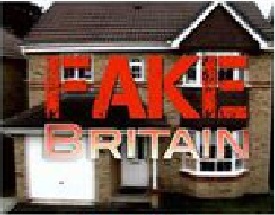|
Dominic Littlewood Born 29 March 1965 (age 45) |
Description Fake celebrities Countless agencies offer celebrity doppelgangers to masquerade as the rich and famous. Whether they're enlisted as light entertainment at a social event or used as a decoy to distract awaiting fans while the real thing escapes through the back door, celebrity body-doubles can earn thousands for simply showing up. Fake reviews Checking comments and star ratings on websites such as Amazon helps us judge products and services based on the experiences of others. Except that in recent months a string of businesses have been caught posing as independent customers and posting fake reviews. As of December this year, such behaviour will fall foul of a European directive banning companies "falsely presenting [themselves] as a consumer", and offenders will be subject to naming and shaming. Fake existence Second Life is not a game; there is no points system, no score, no reward. It is a constructed environment, the sole purpose of which being the " personal enjoyment of its users" (of which there were 8.9 million at the time of going to press). In this internet-based virtual world your character or "avatar" can explore, socialise and trade with other users. With its own currency, the Linden Dollar (fully convertible with the US dollar) users can buy and sell non-existent land and products. Fake friendships The discrepancy between the volume of phone numbers in our mobiles compared to the number of "friends" listed on social "notworking" sites such as Facebook is well documented. The latest crime against friendship is a wave of "friend theft", executed to artificially boost your own social circle. Pilfering acquaintances from the friend lists of others is both a rife and socially unacceptable modern phenomenon. Fake software Fake Nation, a government-funded report, revealed that most people do not perceive downloading pirated material as theft. Despite campaigns highlighting the link between organised crime and pirated material, consumers continue to favour illegal copies, costing the games industry more than £2bn a year in the UK alone. Fake websites Surf the web for the latest gossip on celebrities such as Paris Hilton and Pete Doherty and you may unwittingly expose yourself to identity thieves. Fraudsters have created fake websites containing spyware, bugs and viruses, which request details from subscribers that allow hackers to access personal information, including bank details, which is then sold to criminals. Fake qualifications With student debt at an all-time high, the temptation to fork out hundreds rather than thousands of pounds to obtain a first-class degree is stronger than ever. Websites offering qualifications from GCSEs to doctorates promise certificates barely distinguishable from the real thing. Fake music Joyce Hatto was called a "national treasure" when, in her seventies – and crippled by ill health – the former concert pianist produced some outstanding interpretations of complex works. After her death in June 2006, the music industry and media were up in arms when it was found that many of these "interpretations" were the work of other well-known pianists. Fake information Wikipedia sees itself as the future of encyclopedias: open to anyone, quickly updated, consensual, and with accuracy on a par with Encyclopedia Britannica. Not according to some critics, who have branded it an unrivalled vehicle for the dissemination of misinformation and responsible for the devaluation of research. Especially when the Vatican and the CIA are editing their own pages. Fake winners Mark Thompson, director-general of the BBC, conceded that the organisation deliberately deceived viewers by having fake competition winners in a number of its programmes. Blue Peter presenters were forced to apologise after selecting a child in the studio audience to call in live on-air, after a technical failure prevented the producers selecting a genuine winner for a phone-in competition. |
Spotting Fake Goods




